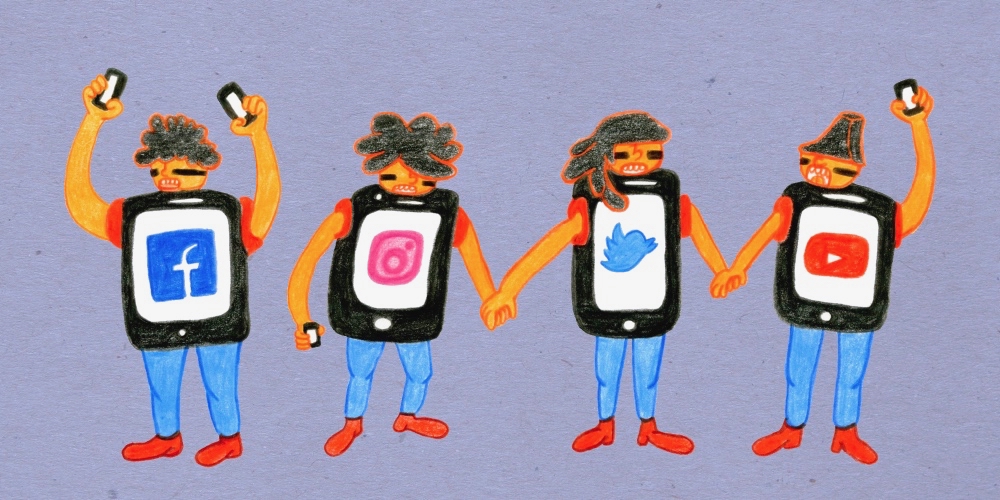Certainly, many have blamed the election of Donald Trump on the spreading of “fake news” and “clickbait” headlines circulated on Facebook .
Jake Seferian, Journalism + Design senior said, “We’re living in a really weird time where people just deny the facts that they don’t agree with.” Though fake conservative news outlets may have contributed to the election of Donald Trump, Seferian said the left is just as guilty of hyper-partisan Facebook news sources, too, citing the websites US Uncut and Occupy Democrats.
Activist and Eugene Lang senior majoring in Screen Studies and minoring in Ethnicity and Race, Djali Cepeda said, “The left and the right are divided because of many reasons, most fundamentally because of what the rise of right, including the alt-right, which we should not sugarcoat and instead call it for what it is: a fascist, neo-Nazi organization, stands for.”
Seferian, who writes queer-friendly sex-positive articles for blogs such as Killer and A Sweet Thang, says that one shouldn’t hesitate to unfriend and sometimes even block friends on social media who don’t share their same beliefs. He embraces his “block happy” outlook on his Facebook feed, especially from de-friending classmates from his Houston, Texas high school. “This a time where so many identities [are] under threat, it hurts to read something that entirely invalidates their experience,” he said. To him, there’s a mental health aspect to policing your social media feed.
Djali Cepeda currently has over 12,000 followers on her Instagram and uses her platform to bring attention to the Trump regime and its effect on Latino, immigrants’, and Native rights. “Of course, that encompasses women’s rights, since women of colors’ existences are literal manifestations of intersectionality,” she said. “As a woman of color, I have no choice but to be an activist.”
Cepeda uses social media to share about issues, raise money for causes she believes in, including $15,000 for winter shelters to be sent to Standing Rock, and hosts Instagram Lives and a weekly show with her mom to discuss the political climate.
“The only way to dismantle and call out this regime is to do so wholeheartedly, despite the fear of social media,” Cepeda said.
Adam Setton, a Lang sophomore majoring in Film Studies, says that they haven’t cut ties with anyone because of their political beliefs. They believe that it’s important to communicate to people the importance of human rights. “I believe it is my responsibility to fight for the same rights my mother fought for when she entered this country.”
They said, “I believe it is my responsibility to fight for my rights because I am a first generation Pakistani/Egyptian, Muslim, Queer person living in America.”
Seferian believes that social media is an important tool in understanding the way people are mobilizing in response to current events. For example, on the day after the Muslim ban, Seferian received a chain message with information on an emergency rally in Washington Square Park the night after the Muslim Ban. “Social media is important, because it’s an exchange of ideas. Even if it’s just the headline, you may not completely internalize it, or believe it, but you’re aware of it.”
Setton is a member of Dirty Ghetto Alienz, a digital collective that aims to create safe spaces online for transgender/gender non-binary or gender non-conformist/intersex and black/indigenous/POC people, specifically young people. “Social media can be a safe space for anything having to do with activism,” they said. Post-election, Setton utilized social media to promote their art and activism, staging a protest and march from the day Trump got elected until inauguration.
Setton marched to give visibility to the people most affected by the President’s new administration, and whose lives are most threatened in this country.
They said, “So if people disagree with my political views and get to live in this country, then I can also live in this country with my set of political views. And isn’t that what makes America so… great?”
Header by Ching Lan







